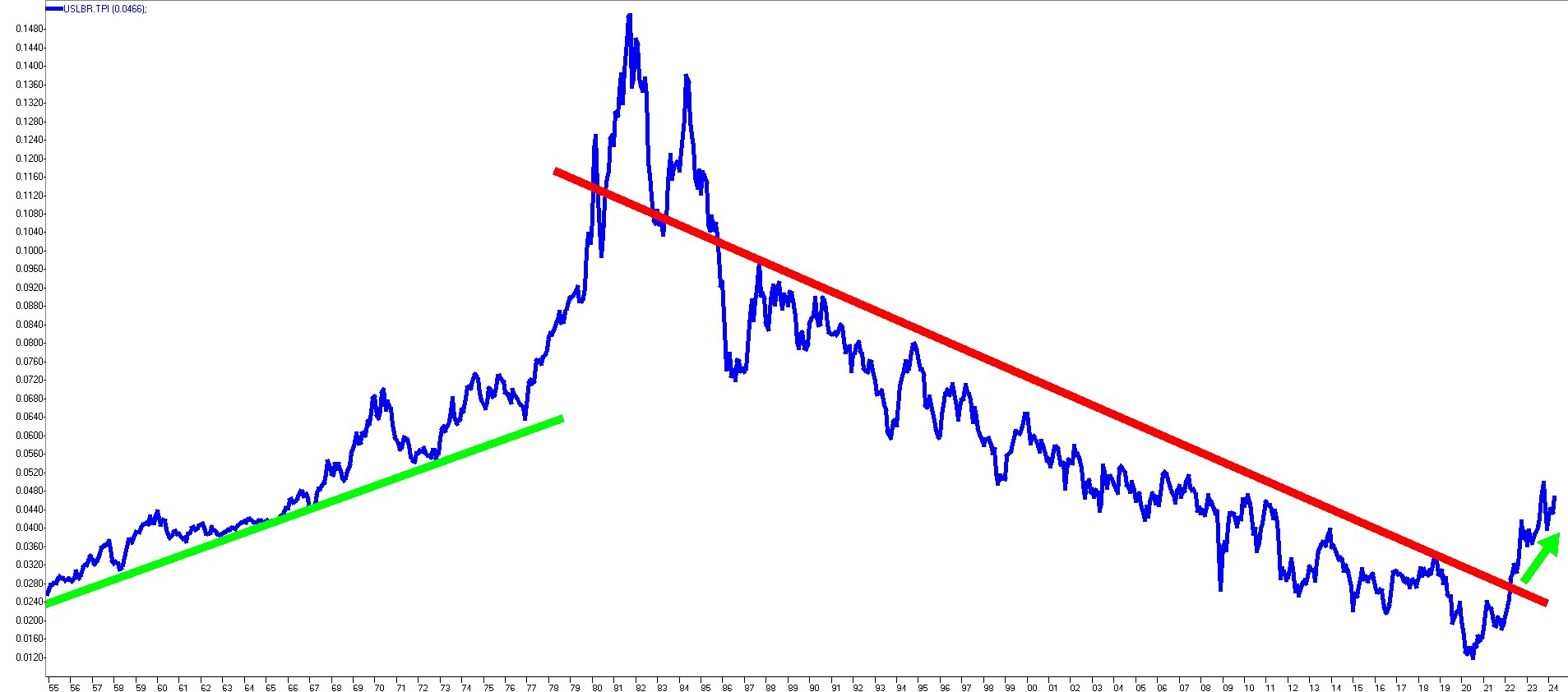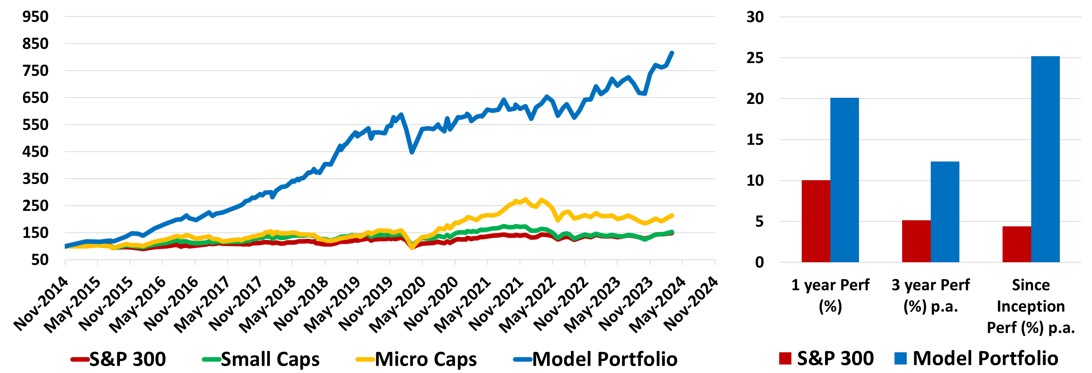Growth at reasonable yield (GARY): April 2024
Yield investing, a strategy traditionally cherished for its potential to generate steady income, now faces a constellation of economic challenges that test its resilience and adaptability. High bond yields, a rising risk of a new inflation wave, slow global growth, elevated interest rates, and the looming threat of recession paint a complex backdrop for investors seeking to maintain or grow their income streams from investments. The GARY (Growth At Reasonable Yield) model from Deep Data Analytics offers that mix of outperformance and risk management.
High bond yields have recently become a prominent feature of the financial landscape. As central banks ramp up interest rates to combat inflation, the yields on newly issued bonds have increased, which could be seen as a boon for new investments in the bond market. However, for existing bond portfolios, this scenario poses a risk, as the value of older bonds with lower yields declines. Investors need to carefully navigate these waters by considering the maturity profiles of their bond investments and potentially shifting towards shorter-duration bonds, which are less sensitive to changes in interest rates.

Amidst these dynamics, the Rising Risk of a new inflation wave adds a further layer of complexity. Triggered by factors such as ongoing supply chain disruptions, labor market constraints, and expansive fiscal and monetary policies across various countries, this new inflationary pressure threatens to erode the real returns of investors. Inflation-linked securities such as Treasury Inflation-Protected Securities (TIPS) and other inflation-hedging assets like commodities or real estate investment trusts (REITs) become critical components of a yield-focused investment strategy under such circumstances.
The situation is compounded by slow global growth. Many economies are still recovering from the impacts of the COVID-19 pandemic, and with the added burden of geopolitical tensions and trade uncertainties, global economic expansion has been tepid. This slow growth environment challenges yield investors by dampening business earnings potential and, by extension, the ability of corporations to pay dividends or interest. In this light, diversification across geographies and sectors, as well as a keen focus on quality and sustainability of earnings, is vital.
Elevated Interest Rates present a dual-edged sword. On one hand, they offer an opportunity for investors to lock in higher yields, particularly through instruments like fixed deposits or bonds issued at these higher rates. On the other hand, high interest rates increase the borrowing costs for businesses, potentially leading to reduced profitability and, consequently, lower dividend payments or even defaults on bonds in more extreme cases.
Adding to the investor's conundrum is the potential risk of recession. As high interest rates persist to control inflation, the cost of financing increases across the board—slowing consumer spending, reducing corporate investment, and generally dampening economic activity. A recession could lead to higher default rates, particularly in the more vulnerable sectors of the economy, which would impact the returns from both bonds and stocks.
In such a challenging environment, strategic adjustments are required. Investors might consider rebalancing their portfolios more frequently, keeping a closer eye on macroeconomic indicators, and remaining flexible in their investment choices. Yield-focused strategies might increasingly incorporate elements of capital preservation, such as investing in high-quality, low-duration bonds, or sectors of the equity market that are less sensitive to economic downturns, such as utilities or healthcare.
In conclusion, while yield investing remains a viable strategy, the current economic climate demands a more nuanced approach. Investors must be prepared to adapt to rapidly changing conditions by enhancing their focus on risk management, diversifying their investment approaches, and maintaining a vigilant eye on global economic developments. In doing so, they can navigate through high bond yields, inflation risks, slow growth, elevated interest rates, and recession threats more effectively, aiming to secure not only yields but also the capital preservation necessary in uncertain times. Deep Data Analytics’ Growth At Reasonable Yield (GARY) offers that with premium outperformance.
The best YTD performers in the GARY Top 10 are: Codan (ASX: CDA), Austal (ASB), Downer (ASX: ASX) and Elders (ASX: ELD).

Note: DDA may or may not have made changes to the model holdings since the end of March. The data driven model portfolios will continue to evolve with the economic/market cycles.
5 topics
4 stocks mentioned

